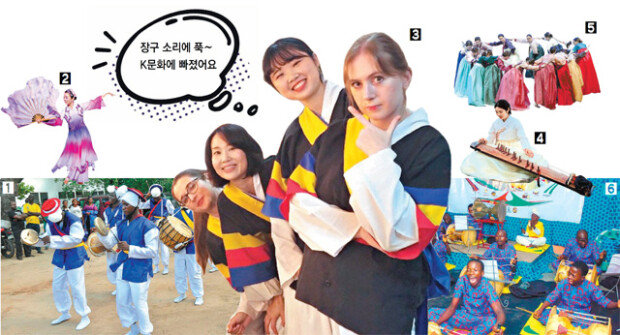Korean Wave is not a fad
Korean Wave is not a fad
Posted December. 31, 2019 07:50,
Updated December. 31, 2019 07:50

Luisa Maria García, 23, who had studied pharmacy at National University of Colombia, was recently introduced to Heo Jun’s “Dongui Bogam” by her Korean friend. Filled with difficult terminologies such as chi and traditional medicines, reading the book is a challenge for García who has been learning Korean for four years. However, she says she finds great joy from learning from the book. “Colombia and South Korea use completely different medicines, and “Dongui Bogam” is a whole new world for me,” she said after listing up the health benefits of plums, which she said are a great digestive.
García’s first introduction to South Korea was “Boys over Flowers (2009),” a KBS TV series that she watched on YouTube eight years ago. With her growing love for Korean TV series and K-pop, she has decided to study for her master’s degree in Korea. Seeing “Dongui Bogam” in person at a library is the first thing on the list of what she wants to do in Korea. “I want to continue to delve into the similarities and differences in medicines of the two nations,” she said.
The Korean Wave is evolving. The term, the Korean Wave, is no longer limited to Korean content. It now goes beyond popular Korean content, such as BTS songs and Director Bong Joon-ho’s latest movie “Parasite,” to describe a much wider variety that affects people’s everyday lives. One hundred respondents from 60 countries whom the Dong-A Ilbo surveyed with the help of the Korean Culture and Information Service and the King Sejong Institute agreed that “the Korean Wave is becoming mainstream.”
A survey of 12,663 K-pop fans from 111 countries conducted by the Korean Tourism Information in October revealed that people’s interest in K-pop has spread to other areas such as Korean food (82.7 %), Korean drama (79.1 %), Korean language (63.8 %) and Korean beauty (63.7 %). The King Sejong Institute, a Korean language school, saw the number of students surpass 60,000 last year as well.
Many K-pop fans say that K-pop is about love, hope and solidarity whereas U.S. hip hop highlights status and wealth, while a Russian fan said, “BTS songs remind me to love myself, believe in a bright future and do my best.” Not having many friends at school, García took comfort from “I am the Best” by 2NE1 when she was bullied for listening Korean pop songs. “‘Let’s walk only on flower paths,’ lyrics of a BTS song, is the most beautiful and hopeful sentence I’ve ever encountered,” she said. A K-pop fan from Brazil also said she always listened to TVXQ when she was bullied at school, adding that K-pop was always there for her when she was crying alone.
Kyu-Jin Shin newjin@donga.com







